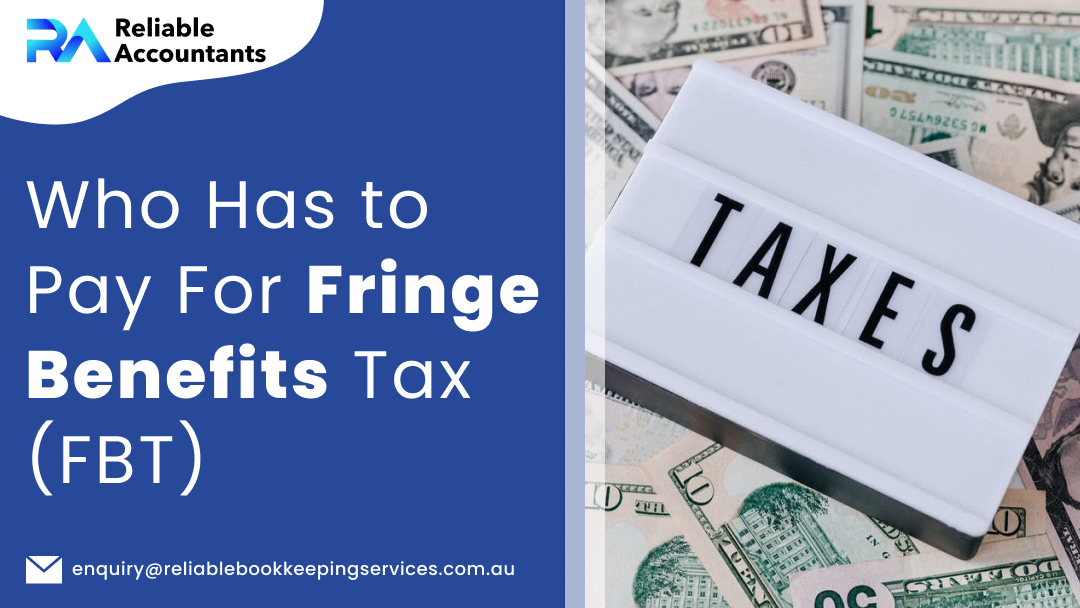What is a Fringe Benefits Tax (FBT)?
A fringe benefit is a payment to an employee that is not paid in the same way as a salary or wages. A fringe benefit is a benefit granted in connection with work, as defined by the Fringe Benefits Tax (FBT) legislation. This effectively refers to a reward offered to someone as a result of their employment. The employee could be a current or previous employee. We are highly expert in providing services of bookkeeping for small businesses as well as large businesses with regard to Fringe Benefits Tax.
For FBT purposes, the terms benefit and fringe benefit have broad definitions. Benefits might be in the form of rights, privileges, or services. A fringe benefit may be offered, for example, when an employer:
- permits an employee to use a work car for personal use
- delivers an employee with a low-interest loan
- subsidises an employee’s gym membership
- provides entertainment in the form of free concert tickets
- reimburses an employee’s expenses, such as school fees
- provides perks under a salary sacrifice agreement
Our expert Bank Reconciliation team helps you to run your business through a corporation or trust by considering the terms of Fringe Benefits Tax (BFT).
Who Pays the Tax?
You, as an employer, are responsible for paying FBT. This is true whether you give the benefit by yourself, or it is delivered by an associate or under a contract you have with a third party. Whether you are a solo trader, partnership, trustee, company, unincorporated organisation, government, or government authority, you must pay FBT as an employer. Our Melbourne Bookkeepers help employers to pay this tax whether or not they owe other taxes, such as income tax.
Are You Providing Fringe Benefits?
If you are not sure to already offering a fringe benefit to your employees, use the checklist below to see if you are. If any of the following apply to you, you may be liable for FBT.
- Do you make company-owned or leased cars or other vehicles available to workers for personal use?
- Do you offer employee loans with lower interest rates?
- Have you ever let an employee off the hook for a debt?
- Have you ever paid for or reimbursed an employee for a non-business expense?
- Do you give your staff a house or a unit to live in?
- Do you offer staff stipends for living away from home?
- Do you supply your employees with food, drink, or recreation as a kind of entertainment?
- Is there a wage package in place for any of your employees?
- Have you given things to your employees at a lesser cost than they are generally sold to the general public?
Besides these our professional Melbourne Bookkeepers helps employers to equip with more knowledge regarding whom to provide Fringe Benefits.
Exemptions from FBT
FBT is not applied to a variety of benefits. Certain religious benefits, as well as benefits granted by international organisations and public benevolent institutions, are included. Furthermore, certain forms of benefits are excluded from FBT.
A variety of discounts are also available. Some of these concessions make a fringe benefit’s taxable value nil, while others simply make a partial reduction.
What are the GST Consequences of Providing Fringe Benefits?
GST (Input Tax) Credits
Acquisitions done to provide fringe benefits have a GST creditable purpose, and if you are registered or obliged to be registered for GST, you are entitled to GST credits for these acquisitions. There are certain exceptions to this general norm, such as when the purchase is for a GST-free or input taxed supply.
If you are entitled to a GST credit for providing a fringe benefit, Our Bank Reconciliation experts help you to calculate the FBT payable by using the higher gross-up rate (known as type 1).
GST and the Value of Fringe Benefits
The value of the fringe benefit is the GST-inclusive value when determining the taxable value of a benefit.
When the otherwise deductible rule applies, the taxable value of a fringe benefit is reduced by the hypothetical income tax deduction that the employee would have been entitled to if the expense had been spent. Where applicable, Our Bookkeeping for small business services helps you to take into consideration the GST-inclusive value in these cases.

